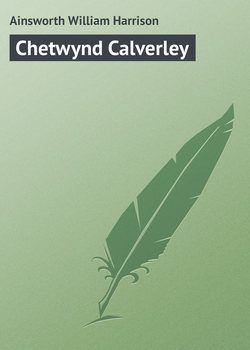Читать книгу Chetwynd Calverley - Ainsworth William Harrison - Страница 21
BOOK THE FIRST – MILDRED
XIII. PURSUIT OF THE GIPSIES
ОглавлениеSir Leycester Barfleur, as we have shown, had ridden with his attendants to the further side of the morass, where he hoped to intercept the gipsies in their flight, but he could discover nothing of them.
Posting himself with Booth, the coachman, on a little mound near the marsh, he sent off the two grooms to the huts previously mentioned, to ascertain whether the fugitives had taken refuge there; but his emissaries brought him no satisfactory intelligence, and it was the opinion of the turf-cutters who inhabited the huts that the gipsies had gone off altogether.
Sir Leycester, however, felt convinced that the rascals were somewhere about, and ordered his men to make a careful search, directing the turf-cutters to assist them.
Again they were all at fault.
Sir Leycester next tried the wood that skirted the heath, and sent the men on by different routes, fixing a place of meeting in the heart of the thicket..
He himself pursued the main road, attended by Booth.
“It’s a pity we didn’t bring those two Scotch deerhounds with us, Sir Leycester,” observed the coachman. “If the gipsies have taken shelter in this wood, – we shall never be able to find ‘em without a dog of some sort.”
“I believe you’re right, Booth,” replied Sir Leycester. “I don’t like hunting men in that way. But what’s to be done, if we can’t catch them otherwise?”
“It’s the only sure plan,” rejoined Booth. “We’re wasting time now.”
“Well, go and fetch the hounds,” said Sir Leycester. “Ride to the keeper’s lodge as fast as you can. If Rushton shouldn’t be at home, go on to the Hall; but use despatch.”
“Shall I bring Rushton with me, as well as the hounds, Sir Leycester?” inquired Booth.
“Ay, do,” replied the baronet.
“And a bloodhound?” asked the coachman, with a grin.
Sir Leycester signified his assent, and Booth galloped off.
He had scarcely started, when the baronet regretted the last order given, and called out to him not to bring the bloodhound.
Booth, however, was out of hearing.
Sir Leycester then proceeded to the centre of the wood, keeping a sharp look-out on either side as he rode along.
The others had already arrived at the appointed spot, but had nothing to tell.
The baronet felt very much inclined to swear; but, just at the moment, a burly farmer, named Marple, who used to hunt with him, came up, mounted on a well-bred horse.
On hearing what was going on, Marple told the baronet he had just seen a couple of gipsies, who appeared to be hiding on the banks of the Weever, and offered to take him to the exact spot.
“No doubt they are the rogues you are looking for, Sir Leycester,” he added.
“No doubt of it!” cried the baronet, joyfully. “Come along!”
He then rode off with Marple, taking the two grooms with him, and leaving the turf-cutters behind, to wait for Booth and the hounds.
The river Weever described a wide half-circle round the east side of the wood, the spot referred to by Marple being about half a mile off.
As they rode at a rattling pace, they were there in a few minutes; but when they approached the river, they proceeded cautiously.
If the gipsies had not decamped, they felt sure of catching them, the Weever being here very deep, while there was no bridge within a mile.
But, cautiously as they came on, they had been descried, and perfectly understanding their design, the gipsies were endeavouring to escape by creeping along the bank of the river, which was here bordered by willows.
Having got nearly to the end of this screen, the fugitives stopped, determined, if hard pressed, to make for the adjoining wood, and being both extremely fleet, they had no doubt of accomplishing their purpose.
